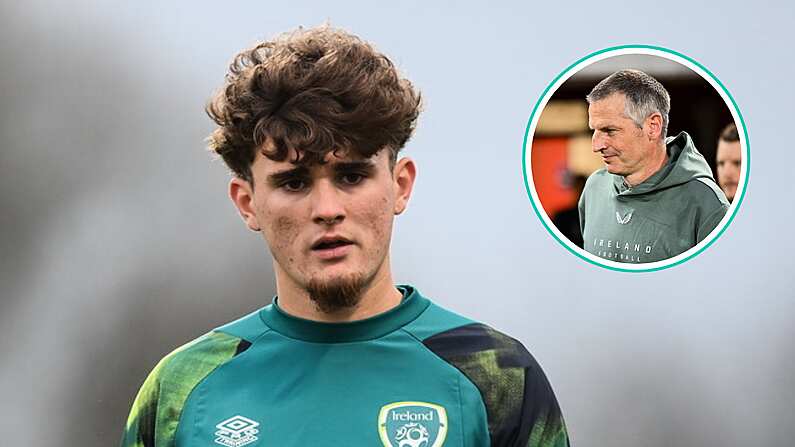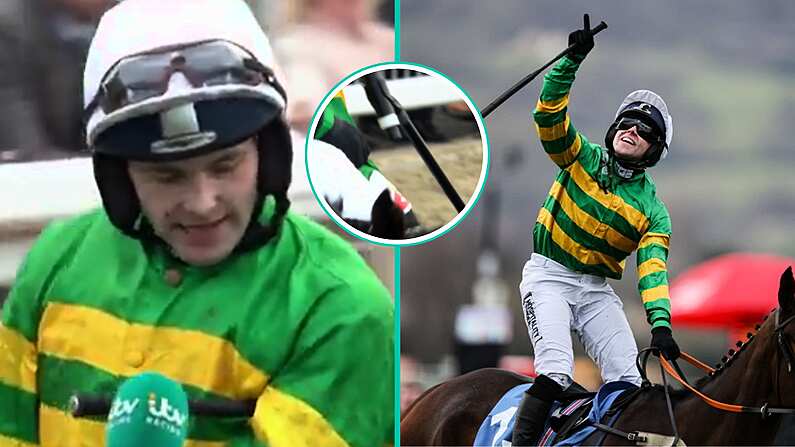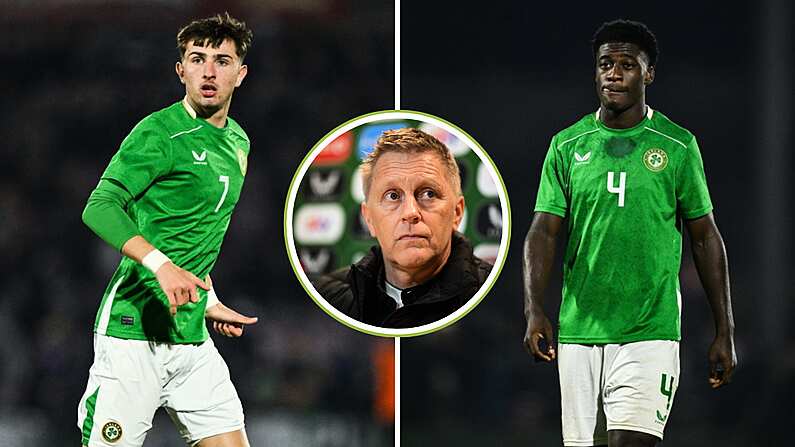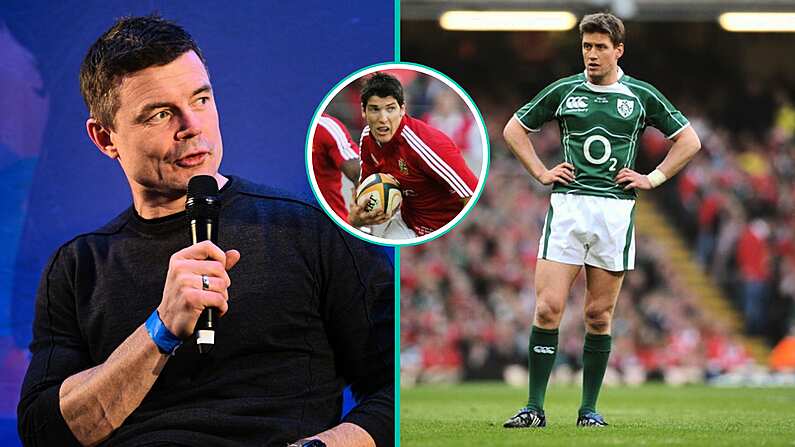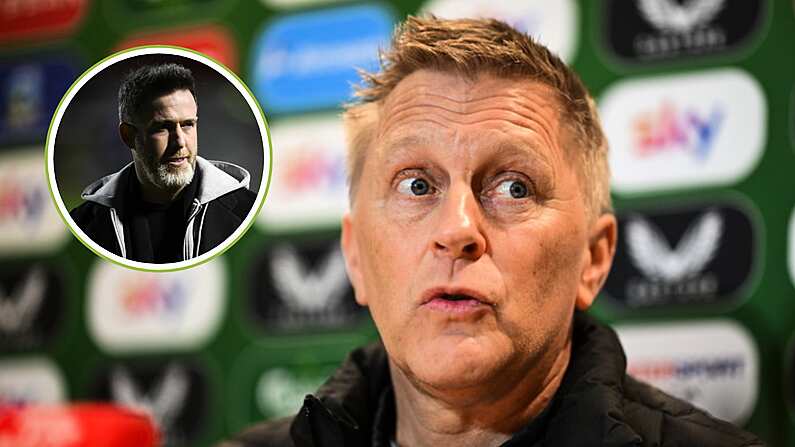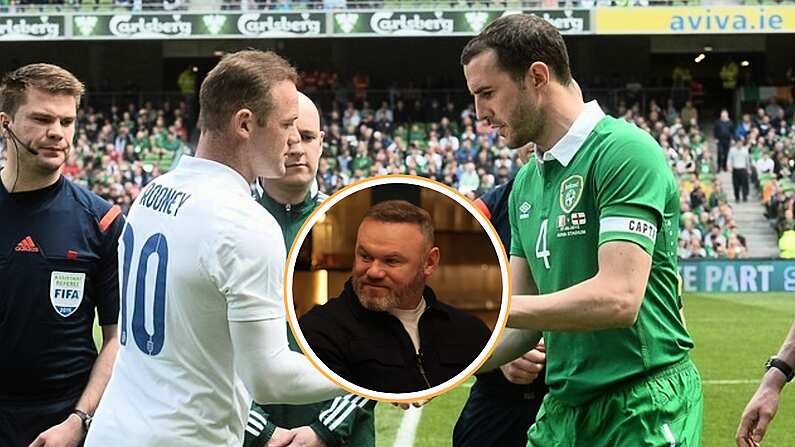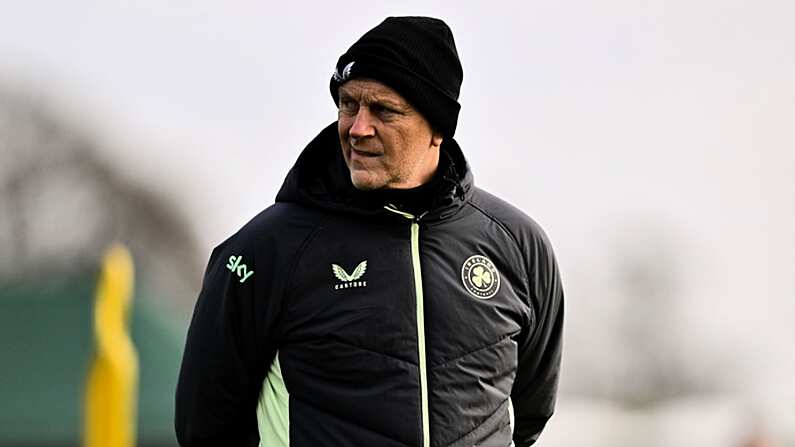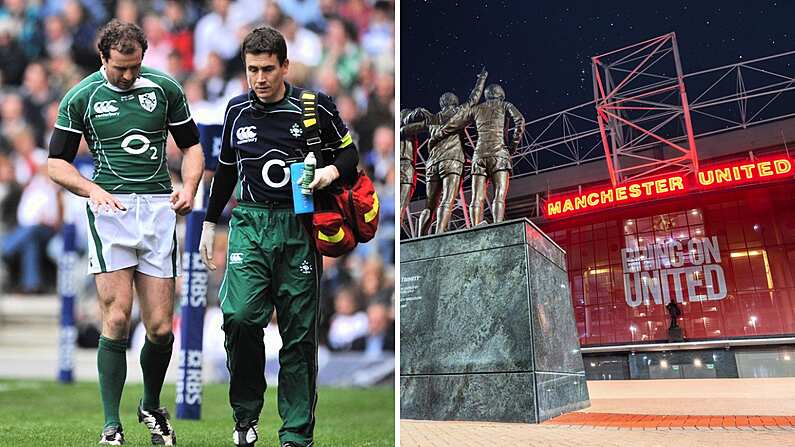Here at Balls.ie, we often receive strange emails, but rarely have we received something as odd as the following dispatch, which was dated exactly three years in the future from today, in the year 2019. The author claims to be a Manchester United fan, and has the full story of what happens after Jose Mourinho succeeded Louis Van Gaal at Old Trafford . We have redacted his name to protect his identity.The author has been again unwilling to respond to requests for comment about what happens to Donald Trump.
From: REDACTED <fergietime@gmail.com>
Date: Thursday, 23 May 2019 15:34
To: The Gaffer <thegaffer@balls.ie>
Subject: Theatre of Broken Dreams
To whom it may concern,
In July 2016 it finally happened: Jose Mourinho got his wish and took over Manchester United. Mourinho had campaigned for the job for months, famously writing a six-page letter to the club assuring that he would change. Sadly, that did not happen....
***
Mourinho began by bombing out young striker Marcus Rashford. This was despite the fact that the teenage striker had impressed for England at Euro 2016, scoring four goals before having a hot-streak ended by the breaking of his metatarsal. He was loaned to Royal Antwerp and was replaced at United by Swedish narcissist Zlatan Ibrahimovic, who took over in an astonishing player-assistant manager role. Zlatan had retired from international football following a Euro 2016 arse handing at the hands of Ciaran Clark. Zlatan replaced Ryan Giggs, who left to become the head coach of Salford City.
Even more surprising was the second appointment to the managerial backroom team: John Terry - despite having signed a contract extension at Chelsea - quit the club when it became abundantly clear that Antonio Conte did not consider him first choice - so answered a call from Jose to join the coaching staff at Old Trafford. He became the northwest's least popular support act since Ringo Starr. One of Terry's main duties was to take charge of kits; a role he was immediately stripped of when he handed out full, first-team kits to stewards and directors.
The third appointment was his agent Jorge Mendes, who was given a desk at United's Carrington training base. Mendes initially caused a stir at the club when he took James Nesbitt's seat beside Alex Ferguson in the stands.
Mourinho splashed the cash early at Old Trafford, signing John Stones from Everton, only to recoil in horror when the ex-Evertonian attempted a stepover on the edge of his own penalty area. Stones is now also at Royal Antwerp. Other players to arrive was the Mendes-represented James Rodriguez and bizarrely, the Mendes-represented Falcao.
Players left also: Mourinho attempted to smoke out Juan Mata by leaving a series of nasty comments under his blog. He succeeded, and Mata is currently an attacking midfielder of some distinction with Royal Antwerp. Marouane Fellaini stayed as Mourinho's chief enforcer of evil. Wayne Rooney remained captain and was withdrawn into a midfield role owing to a lack of pace.
His first game was against Claudio Ranieri's Leicester City in the Community Shield at Wembley. Here, Mourinho began his famed 'mind games' by refusing to shake Ranieri's hand after United's penalty shoot-out victory. Many back-pages discussed this nefarious act of psychological terrorism as proof that the 'Special One Is Back', with another set of newspapers complaining that we were forced to discuss handshakes at all, presumably unaware that they were discussing handshakes by saying that we should not discuss handshakes.
United began the season with a trip to Stamford Bridge to Mourinho's old team. Despite professing his love of all things Chelsea beforehand, a last-minute winner by Phil Jones led to Mourinho sprinting down the touchline in jubilation.
Mourinho quickly realised that his main competition came in the form of Pep Guardiola's Manchester City, and set about trying to undermine all they did with his famed 'mind games'. The English press pack as a whole failed to define exactly what a 'mind game' consisted of, seemingly considering it to be anything Mourinho said in public about anyone other than himself. This led to an extraordinary series of headlines following Mourinho's appearance on popular BBC Radio show Desert Island Discs when Mourinho's selection of a Blur song was said to be a 'brilliantly subtle attack' on Manchester City.
Mourinho did attempt to orchestrate a continued attack on Guardiola, enlisting some of Alex Ferguson's old friends to help orchestrate it. Sam Allardyce became Guardiola's tormentor-in-chief, interpreting one of Pep's maniacal hand signals on the touchline as a slight against his personal character. Allardyce complained that Guardiola was attempting to mock his British upbringing by pretending to be the conductor of the comparatively-highfalutin' arrangement of Mozart's Requiem. Guardiola denied the charge.
***
After a first season that ended with a third-place finish in the league and a group stage exit in the Europa League - Mourinho did not pick a full team as he felt the competition was unworthy of his presence - the manager's second season went far better: ending in a glorious Premier League triumph for the first time since the departure of Alex Ferguson.
A jubilant Ed Woodward immediately held a conference call with the United investors where he championed "a fantastic quarter which has yielded record profits and, most importantly, a new official trophy-polish partner'. The season was blemished by an ill-tempered Champions League semi-final exit to Barcelona, where Mourinho was sent to the stands for a confrontation with Barca's recently installed management team of Martin O'Neill and Roy Keane.
The third season, however, quickly fell to pieces. Results dipped, and James Rodriguez was dropped from the squad for not working hard enough defensively. Mourinho became increasingly paranoid that his job was under threat from the Class of '92, fearing they were planning a coup upon his position. Mourinho believed Paul Scholes was the chief orchestrator of this plan, as he had not appeared in the media since the sacking of Louis Van Gaal. This was later explained by a television producer that Scholes was a redundant figure on television, as he had nothing to say beyond slagging off Louis Van Gaal.
Further paranoia spread when Mourinho was asked by Ed Woodward to review a film released by one of their commercial partners. The film was a remake of Macbeth, which Mourinho perceived as a comment on his time at United: having hoisted the incumbent out of the role, Mourinho felt he was increasingly pushed further to the margins at United.
Mourinho responded in the press that he felt 'betrayed' by the Manchester United commercial department, that they had disregarded his instructions to only review films which could not be understood in allegorical terms. Mourinho was ultimately sacked at the end of his third season when the club refused to bow to his demands to have a statue of him erected beside the bronze sculpture of Alex Ferguson.
Following the breaking of the news by the BBC, The Guardian and reputable sports site Balls.ie, along with further confirmation of the news via an official club statement and a press conference hosted by Mourinho himself, Paddy Crerand appeared on the BBC to attack journalists and deny that Mourinho had ever been Manchester United manager; that as far as he was concerned, Alex Ferguson was still in charge.
The fall-out was nigh on psychotic, with a number of Manchester United players briefing journalists the day of his sacking that they were revolted by Mourinho's training methods, particularly his dreadful habit of inflicting video analysis upon them as a means of improving them as players and fulfilling their basic professional duties.
As for Rashford? He is now back at United following a three-season long loan at Antwerp, where he is hopeful of breaking back into the first-team under new manager Brendan Rodgers.


